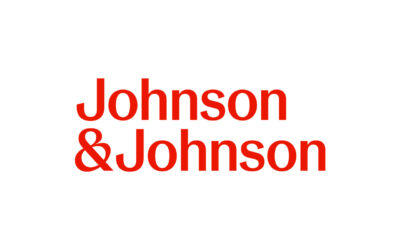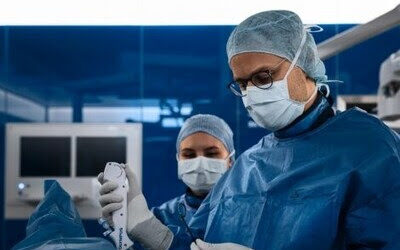I am not a doctor and I don’t play one on TV. I am, however, an occasional patient. So while I am not qualified to write about airway management or anesthesia carts or the pros and cons of scrub laundering services, I am ideally suited to pontificating about physicians, their foibles and fortés.
As an Englishman, my first encounter with an American physician was a memorable one. I had been in the U.S. only a few months after arriving from England. I was directed to an examination room where I waited patiently, and patient-like, for the physician.
After a while, a long while, I heard footsteps in the corridor outside, some activity, rustling of papers, and a loud voice saying: “What’s this guy’s name?” followed by the nurse’s whispered response: “Geoffrey Charlton-Perrin.” The door flew open. In walked a physician I had never met in my entire life, arms outstretched, a beaming smile on his face, as he bellowed, “Geffy, baby!” and hugged me like I was his longlost chum from high school.
Friendliness, accessibility, unpretentiousness – these are welcome qualities in a man of medicine. But there is such a thing as too much friendliness, accessibility and unpretentiousness!
I remember another encounter some years later when I was experiencing extreme discomfort in my right shoulder. Every time I raised my arm to pitch to one of my young sons, I felt a fierce, stabbing pain that prevented me from completing the movement. I went to a physician who enjoyed great renown as “official orthopedic surgeon” to the city’s hockey team. Hockey players must often have shoulder problems, right? How could I go wrong?, I reasoned.
He examined me carefully, put me through several tests, but failed to come up with an answer. More examinations. More tests. Still no answer. At the third visit, as I sat on the exam table being poked and prodded for a third time, he straightened up and delivered – with some fanfare, I might add – his considered opinion.
“You have gout!” To say that I was astonished would be an understatement.
“Gout? How do you work that out?”
“Well, you are English and the English drink a lot of port wine and too much port wine often leads to gout.”
I suddenly had an urge to take to the bottle, possibly copious quantities of port wine. But instead I sought a second opinion.
With every yin, however, there is a yang. Since then, I have been infinitely more fortunate in my visits to specialists. I have undergone knee surgery, watching the specialist clean out fragments from my patella on a monitor while being entertained by a fascinating and informative commentary from the physician as he explained what he was doing and why. And I eventually had surgery on my shoulder – yes that shoulder – to repair the rotator cuff at the hands of a surgeon and surgeon assistant who were not only artists at their craft but friendly, helpful, informative and down-to-earth. And the reason I can say with some authority that they were artists? I was producing a video on ambulatory surgery center accreditation at the time and had the entire procedure filmed so I could include parts of it in the video. Afterwards in the editing room, I marveled at the skill, the deftness, the sure hands of both practitioners. And thanked my lucky stars that I wasn’t witness at the time to what they were doing to my body with what looked suspiciously like a hammer! For a patient, some things are best left a mystery.
Geoffrey Charlton-Perrin is Director of Marketing & Communications for the Accreditation Association for Ambulatory Health Care (AAAHC). In his professional capacity, he has occasion to spend a lot of time thinking and talking with health care professionals about issues of quality and patient safety. As a patient, he naturally looks for health care facilities that are AAAHC accredited as an assurance that they meet nationally-recognized standards.









